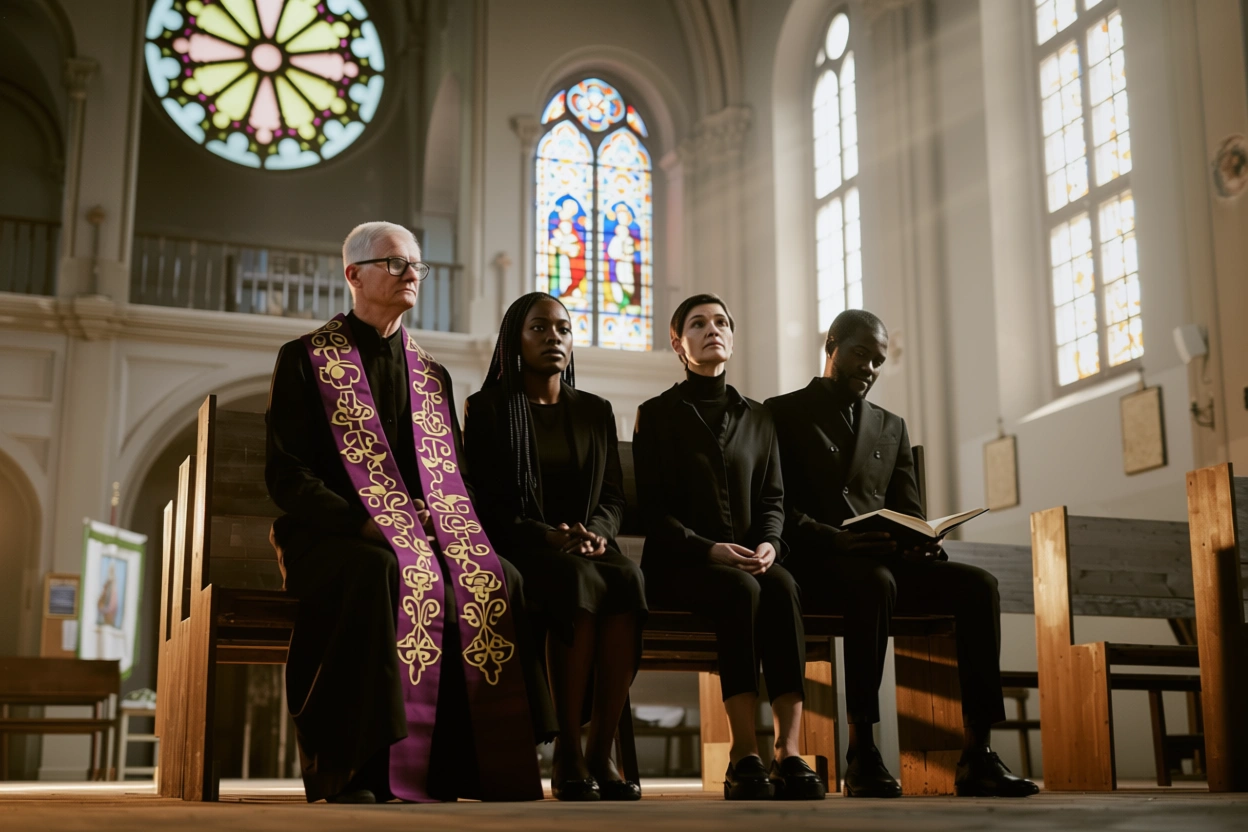Finding balance, hope, and spiritual endurance when the world feels heavy.
Pastors are called to stand in the middle of human suffering, to comfort, to guide, and to proclaim hope when fear and evil seem to dominate the headlines. In recent years, global turmoil, violence, and moral confusion have left congregations anxious and weary. Many pastors find themselves carrying not only their own burdens but the collective grief of their people. In such times, caring for one’s own soul becomes not optional, but sacred.
The rise of evil and suffering not only tests faith; it tests endurance. How can clergy keep their hearts soft while facing constant exposure to pain? How can they continue to pour out hope without running dry?
Recognizing the Weight of the Calling
Pastors often feel they must stay strong for everyone else. Yet pretending to be unaffected by the world’s brokenness leads to exhaustion and emotional numbness. Acknowledging one’s own sadness or anger is not a sign of weak faith; it is an honest response to a suffering world. Ministry leaders must give themselves permission to grieve the same realities that grieve their congregations.
Naming the weight of ministry helps prevent it from becoming invisible and unmanageable. Through confession and reflection, pastors can bring their heavy emotions before God, trusting that He is not threatened by their honesty.
Guarding Against Depletion
When pastors are constantly giving, depletion becomes a silent danger. Ministry in painful seasons requires intentional refilling. Setting rhythms of rest — daily, weekly, and annually — helps prevent emotional collapse. Taking time for silence, prayer, or even recreation is not selfish; it is stewardship. Jesus Himself withdrew from the crowds to renew His strength before returning to serve.
Pastors should also maintain healthy routines: regular sleep, nourishing meals, physical activity, and supportive relationships outside the ministry context. These simple practices create resilience and keep the mind and body grounded when the world feels unstable.

Protecting Against Secondary Trauma
Constant exposure to tragedy and loss can lead to what psychologists call secondary trauma. This occurs when caregivers absorb others’ pain to the point that it begins to affect their own emotional health. Pastors can protect themselves by setting emotional boundaries during counseling sessions, limiting overexposure to distressing media, and seeking supervision or therapy when needed.
Talking with a counselor or mentor provides space to process stories and experiences that may linger in the mind long after the conversation ends. Preventing secondary trauma is not a lack of compassion; it is an act of wisdom that preserves one’s ability to keep caring well.
Cultivating Spiritual Perspective
It is easy for ministry leaders to feel overwhelmed by the magnitude of suffering. Yet Scripture reminds us that even in dark times, light still breaks through. Paul’s words in 2 Corinthians 4 ring true for pastors today: “We are hard pressed on every side, but not crushed; perplexed, but not in despair.” Maintaining perspective means remembering that human suffering, though painful, is not the end of the story.
Pastors can nurture hope by staying rooted in spiritual disciplines that draw them back to God’s presence. Reading Scripture not for sermon preparation but for personal nourishment allows God’s Word to speak directly to the heart. Worship, gratitude journaling, and creative prayer practices reconnect leaders with divine peace that circumstances cannot steal.
Staying Positive Through Community
Isolation magnifies despair. Hope grows when shared. Pastors should intentionally cultivate friendships—both within and outside ministry, where authenticity is welcomed. Peers who understand the unique pressures of pastoral life can provide empathy and perspective. Spouses, mentors, and supportive colleagues remind pastors that they are not alone in the work of faith.
Churches also play a vital role in sustaining their leaders. When congregations affirm their pastor’s humanity, encourage rest, and pray intentionally for their well-being, they help create a healthier spiritual ecosystem for everyone.
Returning to the Source
Every pastor eventually reaches moments when words, energy, and motivation feel depleted. In those moments, the invitation is not to push harder but to return to the Source of strength. Ministry is never sustained by willpower alone; it flows from a relationship with God. Through prayer, solitude, and trusted community, pastors can rediscover the quiet assurance that they are held, even as they hold others.
The world may grow darker, but the call to care remains sacred. Clergy who learn to tend to their own souls in times of turmoil will find renewed peace, not because the suffering has disappeared, but because they have rediscovered the sustaining presence of the One who still speaks peace in the storm.
To receive new articles and training updates, subscribe at ChurchMentalHealthTraining.com.

Source: Adapted and Edited from OpenAI. (2025). ChatGPT (ChatGPT 5) [Thinking]. https://chatgpt.com
Discover more from Church Mental Health Training
Subscribe to get the latest posts sent to your email.



